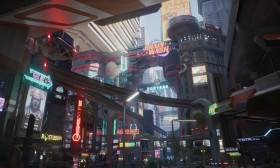The release of Mass Effect Legendary Edition in 2021 was more than a simple graphical overhaul; it was a carefully curated homecoming. For a trilogy so deeply beloved and intensely debated, the remaster was tasked with a monumental challenge: to preserve the soul of the original experience while refining its rougher edges for a new generation. While discussions often focus on visual upgrades, gameplay tweaks, and the infamous ending, one of the most profound, yet subtly handled, aspects of the remaster’s reception lies in its treatment of the iconic musical scores. The Legendary Edition’s approach to its audio landscape offers a fascinating lens through which to analyze not just technological advancement, but a maturing appreciation for the trilogy’s emotional core.
The original trilogy’s music, composed primarily by Jack Wall and Sam Hulick, with crucial contributions from Richard Jacques and Clint Mansell, is not merely background noise. It is the emotional and thematic bedrock of the entire experience. The sweeping, synth-and-orchestral hybrid score of the first Mass Effect established a unique sonic identity—a blend of 80s sci-fi nostalgia and epic, futuristic grandeur. Tracks like "Vigil" and "The Normandy" are instantly recognizable, evoking a potent mix of wonder, loneliness, and resolve. This musical language evolved with the sequels; Mass Effect 2 introduced a darker, more percussive and electronic tone with its "Suicide Mission" theme, while Mass Effect 3 delivered a heartbreakingly beautiful and often brutal orchestral score, perfectly capturing the weight and tragedy of the galaxy-wide war.
The Legendary Edition’s primary triumph with the score was its philosophy of reverence rather than reinvention. BioWare and the audio team understood that these compositions were sacred text. Unlike a visual asset that can be re-textured or a gameplay mechanic that can be rebalanced, tampering with the core melody and instrumentation of "Vigil" would be akin to colorizing Citizen Kane—a fundamentally misguided effort. Therefore, the mission was one of restoration and enhancement.
The most significant technical improvement was the move to high-fidelity, lossless audio formats. For players with capable sound systems, this was a revelation. The original games, particularly Mass Effect, were constrained by the audio limitations of their time. Compressed audio files often masked the depth and detail of the compositions. In the Legendary Edition, layers of instrumentation previously buried in the mix were brought to the forefront. The subtle electronic pulses underlying the Citadel’s ambiance, the full breath of the string sections in Mass Effect 3’s "An End, Once and For All," and the crisp impact of every drum hit in the combat music gained new clarity and power. This wasn't a remix; it was the score being heard as originally intended, with a clarity previously impossible.
This technical cleanup had a direct and powerful impact on the player's emotional journey. The emotional beats of the trilogy land with greater force because the music supporting them is more present and immersive. The quiet, hopeful piano cue when Shepard first meets Sovereign on Virmire now feels more intimate and chilling. The driving, adrenaline-fueled rhythms during the suicide mission carry a sharper, more urgent edge. The haunting, vocal-driven tragedy of "Leaving Earth" in Mass Effect 3 loses none of its punch and arguably gains rawness with its enhanced audio fidelity. The score’s enhanced role reaffirmed its position as the trilogy’s unwavering emotional compass.

However, the reception wasn't without its nuances. Some purists noted specific, though minor, changes to the audio mix in certain scenes. A handful of fans observed that the balance between music, dialogue, and sound effects felt different in a few key moments, sometimes slightly diminishing the score’s prominence to ensure dialogue clarity. This highlights the delicate tightrope walk of a remaster: even faithful preservation requires recalibration for modern standards, which can inadvertently alter the original’s carefully constructed atmosphere.
Furthermore, the Legendary Edition consolidated the trilogy’s DLC, which meant integrating their stellar musical contributions into the whole. Lair of the Shadow Broker’s tense, spy-thriller themes and Citadel’s playful, nostalgic motifs now sit seamlessly alongside the core scores. Most notably, the inclusion of Mass Effect 3: Extended Cut and its accompanying new music by Sam Hulick provided the definitive version of the ending’s score. Tracks like "Das Malefitz" for the high-EMS Destroy ending offer a more complex, bittersweet, and ultimately more satisfying emotional conclusion than the original, demonstrating how new music could be used to fix narrative shortcomings.
In conclusion, the reception of the Mass Effect Legendary Edition’s score is a story of successful, respectful preservation. It stands as a case study in how to treat a classic video game soundtrack. By choosing to meticulously polish and present the original compositions in their best possible light, rather than rewriting them, the developers validated the profound connection players had formed with this music over a decade. The enhanced score didn't change the story of Commander Shepard, but it deepened the emotional resonance of every victory, every loss, and every quiet moment in between. It proved that the soul of the Mass Effect trilogy was always, and remains, inextricably tied to its sound. The music was, and is, the heartbeat of the Normandy, and the Legendary Edition ensured that heartbeat was stronger and clearer than ever before.














